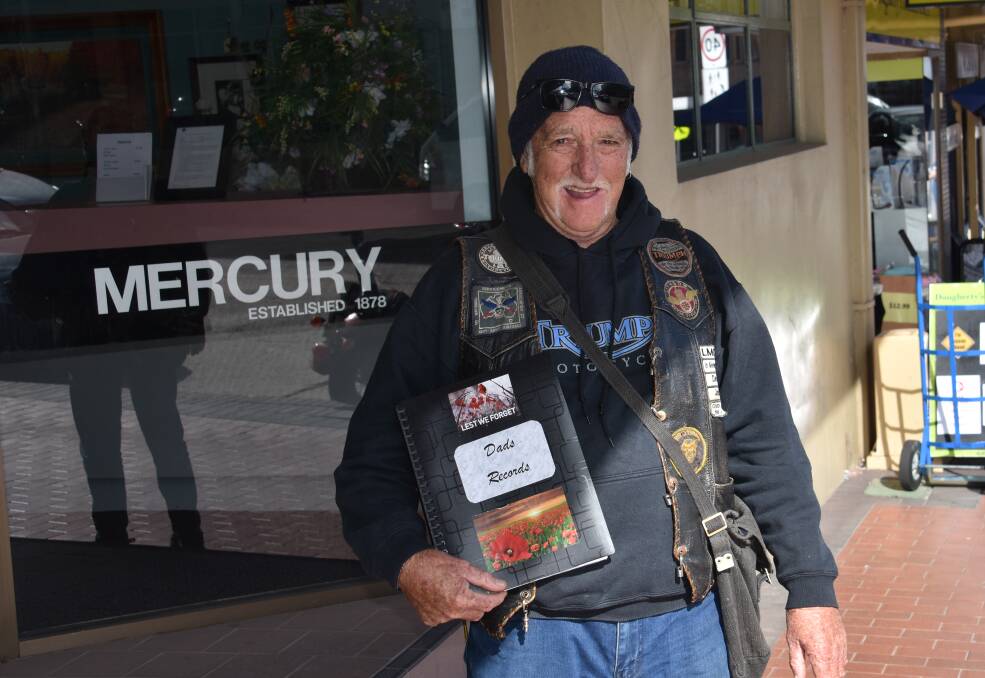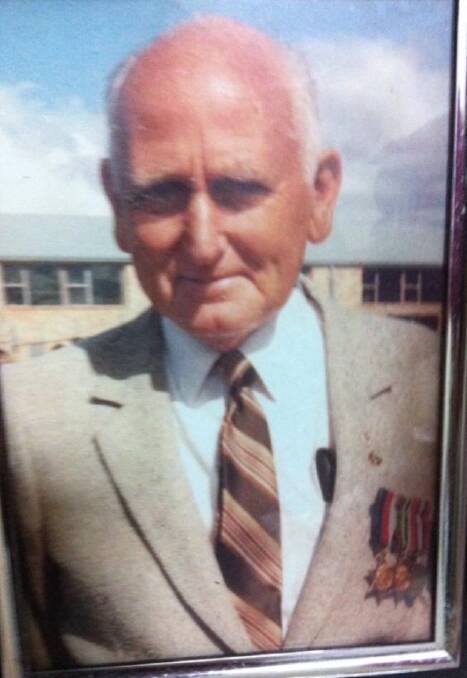
Leading up to ANZAC Day, Lithgow's Bill Cambridge shared a touching piece of family history with the Lithgow Mercury about his father Tom Cambridge who was a survivor of the infamous Burma Railway as a POW (prisoner of war) in World War II, and later worked as a typesetter at the Mercury.
Subscribe now for unlimited access.
$0/
(min cost $0)
or signup to continue reading
Tom Cambridge enlisted in Sydney in 1941 to join the Australian Army at just 19 years-old. He served in the 2/29 Battalion, eighth division.
Bill said his dad was one of 12 siblings, and all the men joined up to serve.
"They lived in a house with no electricity and a dirt floor, it was the only option to get them through the next three and a half years, it was a really horrible time," he said.
He said his dad was serving in Singapore when the Japanese came down from the hill, turned off the water and left the soldiers to die of dehydration.
The Australian Army had no choice but to surrender all 41 soldiers to work on the Burma Railway, in which Tom became a POW for the next three-and-a half years.
"Dad was at Changi prison and would be taken down with a group of men to work on the railway each day, the Japs wanted it built so they got soldiers to do it. There were Australians, Koreans... all different nationalities," Bill said.
Tom worked on what is known as Hellfire Pass and described it as "like hell" to Bill.
"I used to ask him about it, it was hard for him to talk but he did tell me about it. These poor men, my dad was building this railway with forced labour," Bill said.
He also said that due to no food the men were weak and prone to horrible diseases.
"All of them suffered, a few of dad's mates got cholera, they had to burn the bodies, he had to watch his mates die.
"Everyone who died over there, died with a mate holding their hand," he said.
Fortunately the soldiers were lucky to have Sir Edward "Weary" Dunlop, an Australian surgeon who was known for his leadership while being held prisoner, according to Bill.
"Dad told me Weary was very good, resourceful in finding things, they had virtually nothing over there but they had to use what they could," he said.
Bill said the local people would try to push food under the fence to feed the soldiers.
"It was tough, the men would eat anything they could get their hands on, even rats just to survive," he said.
Bill said his dad was around 90 kilograms when he left for War and went down to 45 kilograms with the work he was doing and no food.
"I don't know how he survived, but he said the only thing that got him through the hardships were his mates, without your mates you've got nothing," he said.
Tom arrived home in 1945 after the United States dropped the bomb on Hiroshima, leading to the Japanese' surrender.

"They dropped their guns and our men were finally free to go home. I remember dad telling me how they were fed with a lot of meat and potatoes on the trip home," Bill said.
After returning home, Bill's dad jumped straight back into work.
"He was a strong man, he didn't allow himself to suffer from PTSD (post-traumatic stress disorder), he had to leap back into a normal life because he knew no one was going to hand it to him," Bill said.
Bill also said the only thing that gave his dad the will to survive was when he met his wife, Joyce.
"Dad told me if it wasn't for mum he would've died at 30, it was like that for all these men who returned from war; their wives and families got them through it," he said.
Tom came to Lithgow in 1951 to work as a typesetter at the Lithgow Mercury, until he retired at the age of 60.
Bill said his father passed away at 84, and was lucky to have 20 years of good life.
"I'm very proud of him and proud to be his son, he was a great man, everyone loved him and I love to talk about him to share his story and the blokes he served with, they were all good blokes," he said.
Every year on ANZAC Day, Bill said the whole family comes together to celebrate Tom's life.
"We go to the dawn service, the main service and then we go to Smiley's - my sister's husband, he cooks us breakfast and that's been going on for years, it's a great chance to remember," he said.
He also said he wears his dad's medals and the family all got a set made up to wear on ANZAC Day for the grandchildren.
"It's beautiful that we can carry his memory, dad loved everything in life and made the most of everything.
"I try to do the same... you whinge about the little things in life, but my dad went through hell and back so it makes me appreciate life just that little bit more," Bill said.
While you're with us, you can now receive updates straight to your inbox from the Lithgow Mercury. To make sure you're up to date with all the news, sign up here.


